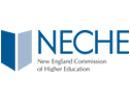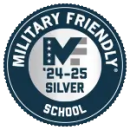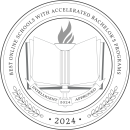Complete CMIT-130.
Explore Software Development
Every online app, game on your mobile device, database and online shopping experience was created by a software developer, making it an increasingly in-demand and high-paying field, and an ideal career path for people with technical aptitude. Designed for working adults, Champlain's online bachelor's degree in software development will build upon your existing technical skillset and provide a new specialized body of knowledge with truly endless applications.
Finish your program faster with credit for prior learning and experience.
Differentiate your degree and get your resume noticed with an added certificate. Speak with your advisor for information.
Build Your Career Future
Through an online software development degree program that emphasizes hands-on learning putting theory into practice, and working with cutting-edge technologies, you'll gain critical technical skills (including knowledge of over 23 key applications, platforms, and programming languages, listed below) in addition to valuable soft skills such as communication and leadership that will help you stand out as a well-rounded software development professional. You'll also have the opportunity to differentiate your software development bachelor's degree with a certificate in C++ Programming or Software Development, just speak with your advisor once you begin your program.
Program Curriculum
Learn more about Champlain's 100% online software development bachelor's degree, designed for working professionals.
Champlain's online software development courses encompass the top skills needed by today's software development professionals. Graduates of the program are required to complete the following courses.
Professional Courses (60 credits)
Technical Electives (12 credits)
General Education Courses (42 credits)
General Electives (6 credits)
Note: Some of the courses in this program are available in 15-week terms only. Please contact your advisor for details and information on how this may impact your time to completion.
This course provides students with an understanding of the many different devices and technologies, from historical to emerging, that are required to design and build networks. In a broad survey of concepts and terminology, students will learn about topology, communications, protocols, and security, and to diagram basic networks to specification.
From day one, students in this course are problem solving, first in terms of algorithmic design and then as early as week two via programming in the latest version of Python, using PyCharm. Students begin by writing a program to have a conversation, having strings and numbers as input, and advance, by week seven, to building a working password saver program, capable of looking up, adding (and encrypting), and storing passwords.
Learn the basics and more in this course on Relational Database Management Systems (RDBMS) and SQL (Structured Query Language). Students propose a final project in the first module and then work, week-by-week, to design, create, and populate the database. Then, students learn to create queries and stored procedures.
Cloud computing has become increasingly central to Information Security (IS) strategies both at the corporate and personal level. It unifies a variety of technologies to provide businesses a method to improve business efficiency and reduce costs. This course will cover concepts, protocols and implementation details for working with and implementing cloud technologies within an organization.
Prerequisites
In this course, students must use previously acquired and new, advanced skills in SQL (Structured Query Language) to modify an existing database to the needs of a client. Students write stored procedures and common table expressions, and learn to debug, rollback and use system stored procedures.
Prerequisites
CMIT-200
This course will introduce foundation subject matter and technologies that are critical to the multidisciplinary landscape of cybersecurity.
Through this course, students learn about what makes up an operating system and the various threats to that operating system and, by extension, the user. The focus of this course is on CentOS Linux and Windows Server.
Prerequisites
Complete CYBR-210.
Students will explore foundational concepts of calculus as they investigate limits, derivatives, and integrals, applying the product, quotient, and chain rules for differentiation and integration to algebraic, exponential, logarithmic, and trigonometric functions. Through problem-solving and real-world applications, students will analyze and optimize functions, sketch curves, and compute areas under graphs for both definite and indefinite integrals, and integrate by substitution and by parts.
This course introduces foundational concepts in discrete mathematics. Students will explore set theory, logic, and Boolean algebra, apply proof techniques like induction, and solve combinatorics problems using permutations and combinations. The course emphasizes graph theory, including trees, Euler and Hamilton paths, and algorithms, and examines functions and growth measures such as Big-O notation to develop critical problem-solving skills.
Prerequisites
Complete MATH-210
Project Management is the formal application of knowledge, skills, tools, and techniques to project-based activities to meet organizational requirements. Project management is accomplished through the use of processes such as Initiating, Planning, Executing, Monitoring and Controlling, and Closing. Project managers can divide projects into these phases to provide better management control with appropriate links to the ongoing operations of the organization. Collectively, these phases, known as the project life cycle, form the foundation for the practice of project management and are guided by the Body of Knowledge from the Project Management Institute (PMI).
This course covers the fundamentals of systems analysis while emphasizing the role of communication and other soft skills needed in IT and in business overall to be successful. The topics are useful for anyone who is involved in developing software system requirements and architectures (e.g., users, technical managers, product managers, technical leads, programmers, other software project team members, and clients).
Prerequisites
CMIT-135, CMIT-200, MGMT-260
This course will introduce students to programming concepts, using a major industry programming language, C++. SDEV-240 covers the history of programming languages, the essentials of the C++ programming language, and how to write effective and efficient programs to solve a variety of real-world problems.
Prerequisites
CMIT-135
In Computer Architecture and Assembly, students learn how computing systems execute instructions at the machine level, how they manage different memory levels, how co-processors interact, and how different programming choices influence execution time. Students learn how to program with MIPS Assembly, a RISK-architecture Assembly Language, and use it to bridge theory with practice.
Prerequisites
SDEV-240
The focus of this course is to cover the robust and powerful features of C++ and Object Oriented Programming. These skills will serve as a foundation to transit to develop Client/Server, Database driven applications and simulations.
Prerequisites
SDEV-240
In this course, students will learn about correct, efficient data structures and algorithms, and how to design, analyze, and implement them in software applications. Various abstract data types including linked lists, stacks, queues, and trees will be covered in detail. Algorithms for searching, sorting, and implementing data structures will be examined using diagrams, animations, pseudocode, and C++ code.
Prerequisites
SDEV-340, MATH270
SDEV 385 is about how operating systems work. Students study the main concepts regarding OS architecture, including memory management, Virtual management, scheduling and concurrency. The operational tools in this class are the Linux operating system and the C++ programming language.
Prerequisites
SDEV-345 and SDEV-310
This is a course where students have the opportunity to integrate what they have learned in the other classes, through a self-direct project, where students apply concepts of business strategy, project management, and system analysis to create a fully documented product developed in C++, Java or Visual C#.
Prerequisites
CMIT-200 AND either SDEV-340 or SDEV-350. Must have 90 completed credits.
Students will write scripts for a variety of Linux operating system functions that perform typical tasks. In addition to covering scripting syntax, efficient coding techniques and documentation will be addressed. Topics include Linux shell commands, file redirection, regular expressions, and shell programming in the Bourne Again Shell (BASH) language. Assignments will provide hands-on experience writing and executing shell scripts on virtual Linux computers.
Prerequisites
SDEV-240
From storyboard to form creation, students walk through the steps to create a basic four to five-page website to specification in this course that introduces HTML5 and CSS. Hands-on assignments reinforce skills development and best practices in design: navigation, column layout, image editing and usage, fonts and tables.
Websites have three functions - to facilitate, enable and persuade - and are only useful if they can connect people and achieve definite goals. In this course, students learn to understand the concept of usability, and the roles of interaction, users, communication and collaboration as well as how to evaluate usability, and observe and test users.
Prerequisites
WEBD-215 OR SDEV-230
In addition to the following courses, please complete one 3-credit General Education Elective by choosing a course from the following:
- ARTS
- COMM
- CRIM (except CRIM 225)
- CRIT
- ENGL
- HIST
- MATH
- MKCM 120
- PHIL
- PSYC
- SOCI
This course introduces students to the foundational concepts needed to communicate effectively in writing for academic study and professional development. Students will also learn to read critically to evaluate an author's message. Students will be introduced to rhetorical modes and their role in the development of written communication. Students will also learn how to use revision strategies to create written communication that meets its intended purpose for its intended audience
This course builds on students' proficiency in the writing process and rhetorical modes to introduce the use of sources in written communication. Students will practice information literacy as they learn to determine information needs from sources, develop effective search strategies, and incorporate sources in written communication, legally and ethically.
Prerequisites
Complete ENGL-100
Starting with a frame of human communication as a dynamic system of interactions in which people make choices that impact their relationships, other people, and themselves, students will define theory-informed communication concepts and processes, and critically examine how they apply to everyday life across a variety of contexts. Students will reflect on how the theory, concepts and processes apply to their own lives in becoming competent communicators who are knowledgeable, skilled, and versatile.
This course examines the principles of effective small group interaction. Students will analyze group development stages and small group roles. They will identify and evaluate communication skills that enhance small group cohesion and problem-solving. Students will explain how conflict affects group processes and compare face-to-face versus digital collaboration environments. These skills prepare students to participate effectively in group settings across academic, professional, and community contexts.
Students will learn and apply critical inquiry skills to analyze persuasive communication created by others and to develop persuasive communication/arguments of their own to solve problems in professional, civic, social, and personal contexts. Specifically, students will learn to recognize fallacies in logic; apply inductive and deductive reasoning strategies to the interpretation and development of persuasive communication; evaluate the validity of sources; and develop logically sound persuasive communication. Students will explore the roles of self-awareness, empathy, and ethics in the context of critical inquiry and the development of arguments.
Prerequisites
Complete ENGL-110.
This course is an historical overview, and examination of the evolution of digital, film, and print media, and their functions. Students will identify and analyze contemporary problems of the media such as the legal, social, economic and psychological implications of their relationships with society. They also will examine the ways in which marketing and PR professionals utilize the mass media channels to reach their intended target audiences.
This course explores the complex and evolving relationship between human beings and technology. Through a multi-disciplinary approach that draws on fields such as sociology, psychology, philosophy, and history, students will examine the ways in which technology has shaped human culture, identity, and values, as well as how humans have influenced and continue to influence the development, adoption and use of technology.
Mathematical reasoning, when applied to everyday and professional lives, has two dimensions: logic for deterministic situations and probabilities for non-deterministic situations. This course aims to help students develop these mathematical reasoning skills.
This course introduces students to basic statistics for data literacy. With a focus on exploring real-world data, students will interpret numerical information and utilize the tools necessary to complete the entire statistical process: designing a study; gathering, organizing, and analyzing sample data; and making inferences about a population. Students will demonstrate data-driven decision-making and effective communication of numerical data.
This course covers the fundamental concepts of linear algebra and analytical geometry, including matrices, vectors, linear transformations, and systems of linear equations. Students will also explore the analytical geometry of Euclidean spaces, including lines, planes, circles, spheres, and conic sections. In this course, students will develop their mathematical reasoning skills and learn how to apply these principles to solve real-world problems.
Introduces students to the biochemistry and physiology of nutrition and exercise. Emphasis will be placed on human body systems such as musculoskeletal, digestive, respiratory and circulatory, and their relationship to nutrition and fitness. Students will also study the biochemistry of energy conversion as it relates to exercise physiology. Laboratory sessions are designed to reinforce, by a hands-on approach, the principles discussed in lecture. Course includes two laboratory hours per week.
Students will develop the ability to apply scientific methods to understand the natural world, to identify scientific aspects of daily life, and to evaluate the quality of scientific information based on its source and the methods used for its generation.
In this course, students will gain an introduction to classical mechanics and learn about motion, force, energy, and momentum. The course covers vectors, scalars, and coordinate systems, as well as kinematics in one and two dimensions, Newton's Laws of Motion, circular motion, and kinetic energy and work. Students also learn about potential energy and energy conservation, collision theory, rotational motion, moment of inertia, torque, rotational dynamics, and angular momentum.
This course will introduce students to major streams of social justice thought, including historical social justice movements, theoretical problems having to do with social equality, personal freedom, marginalization, and stigmatization, and the ways in which civic and professional communities respond to these issues.
With pressure and release, a window opens and closes, recording light on a sensor. The simple action captures the instinct, judgement, and skill of the person behind the lens. This class will begin a study of the art and craft of photography. Students will develop their vision and their understanding of how to achieve it. Solid skills will be learned and many doors will be opened.
A survey of the continuing change experienced in art since the 15th century. Students will examine how an image is achieved as well as the significance of the subject represented. Individual inquiry concerning the nature of art is encouraged.
Students learn to appreciate films through the critical analysis of various elements of mise-en-scene, cinematography, editing and sound. The course introduces the conventions of classical Hollywood cinema, considers the work of one major director (auteur), and surveys selected international and independent films. Students view and discuss films each week.
Students in the course will explore the cultural history of the music genre broadly referred to as rock. Students will explore the social, economic and political contexts that are influenced by and that influenced each style in the United States. By listening, watching, reflecting upon, discussing and writing, students will explore how music takes on meaning, personally, and culturally. Topics and themes include the relationships between and among gospel, country, funk, folk, disco, rap and hip hop; the role of business and technology in those relationships, and political or transgressive elements of rock music.
Specific application of common tools for writing in the working world. Students will be instructed in rhetorical strategies of professional writing including style, report formats, editing, document design, and integration of visual aids. Students will complete a semester-long writing project; oral and written reports associated with the process of problem-solving within the project will be included.
Prerequisites
ENGL-112 or COR-125
Students will learn how to create conditions for successful conflict engagement, a necessary skill for any professional. The course focuses on the foundational capacities to remain calm and connected with oneself and others. In this state students can access helpful ideas and responses and be their best selves regardless of environment. Improving facility for conflict creates stronger relationships and reduces fear. By the end of the course, students will understand that disagreement and difference can become a source of personal and interpersonal growth.
In this course, students will explore and apply writing principles and techniques to effectively interpret and write technical workplace materials. Students will enhance and gain skills to communicate business and technical information by producing instructions, describing processes, applying document design elements, creating and integrating illustrations, researching and writing proposals and formal reports, and presenting content for decision-makers.
This course introduces students to the fundamentals of substantive criminal law. With this foundation for understanding the legal system students will identify the essential elements of crimes, including the criminal act, criminal state of mind, and jurisdiction. They will examine the rationale underlying criminal law, factors affecting criminal responsibility, and legal defenses. By analyzing real-world scenarios, students will develop skills to distinguish lawful from unlawful actions and prepare for advanced studies or careers in criminal justice.
This course focuses on the rules and procedures governing how the American criminal justice system must process individuals suspected, accused, and convicted of law violations.
In this course, students will explore the theory and fundamentals of criminal investigation, emphasizing practical applications for evidence handling and case development. Students will review basic responsibilities of investigators and protocols for report writing, evidence collection, and preparation of cases for trial. The curriculum examines investigative approaches for various crime categories, including violent offenses, property crimes, terrorism, and hate crimes, while introducing comparative perspectives from diverse legal systems.
Prerequisites
Take CRIM-120.
Principles of Economics introduces the fundamental concepts of economics - the study of how people manage resources, and how they react to scarcity. This course focuses on both microeconomics (the behavior of consumers and companies) and macroeconomics (large-scale economic factors such as employment and interest rates), so that you'll gain a broad understanding of how a modern market economy functions, how decisions in business settings are informed by economics, and how economics applies to your everyday life.
Students will study important themes in the social history of the United States since the Civil War. This course allows students to expand their critical thinking skills through an examination of primary and secondary sources. Themes might include: the evolving status of women; the immigrant experience; the concept of the American dream; the paradox of freedom vs. slavery; the minority experience; the tensions between social classes. Students will be evaluated primarily on writing assignments.
In this course, students will explore broad, foundational knowledge in psychology, including its history, major theorists and a survey of psychology subfields such as developmental, cognitive and social psychology. Students will also describe and assess the role of ethics and social responsibility in the study and application of psychological theory and practices.
In this class, students will explore how social relationships, groups, societies and culture develop and change over time. From a sociological theory foundation and employing the sociological imagination, students will examine the impact of social structures, institutions, and systems on individual lives. Students will apply sociological research methods to investigate sociological phenomena in their own lives.
Starting Fall 2026 the following changes will be made to the General Education curriculum:
- New category, Integration: CRIT 100 Mindsets for Modern Learning (3 credits)
- Social Science and Arts & Humanities categories combine, still just 6 credits required.
- General Education Electives: credits increase to 6
Additional Program Details
Graduates of the software development bachelor's online degree program will demonstrate the following industry-specific skills, knowledge, and competencies:
- Analyze stakeholders’ needs in order to design, construct, test and maintain software that is user friendly and efficient.
- Write, test and maintain computer programs and/or web applications or web-enabled applications in at least three languages, making use of the computational environment associated with that program, including cloud services, taking into account security, networking and hardware interfaces, concurrent processing, embedded systems and multi-threading.
- Create and operate database and database management systems to organize, store and retrieve data to support the needs of other programs and applications and to meet the needs of the client or customer.
- Manage software development projects to deliver products created collaboratively and be able to articulate the developer’s role, both horizontally and vertical, as part of the development community and of society.
Design your own degree and enhance its value and focus by adding a certificate. Adding a certificate allows you to develop specialized skills, strengthen your résumé, and tailor your education to align with career goals. Choose from the undergraduate or graduate certificates on this page.
Note: To earn a certificate, you must speak with your advisor first. You must be officially enrolled in the certificate program before you complete the required courses in it — coursework completed prior to enrollment cannot be applied later, and certificates may not be added retroactively. Careful planning with an advisor is essential to ensure all policies and timelines are met.
- BASH
- C++
- CentOS Linux
- CSH
- CSS
- GEdit
- GNU Emacs
- HTML5
- Java
- Linux
- Object Oriented Programming
- OS Architecture
- POSIX
- PyCharm
- Python
- Relational Database Management Systems (RDBMS)
- SQL (Structured Query Language)
- SED
- Structured
- Unix
- VI
- Windows Serve
Students who have earned the CISSP Certification are eligible for transfer credits toward this degree. Please speak to an admission representative or your academic advisor for details.
Our admissions team seeks to admit students who:
- Demonstrate a solid academic foundation - a minimum 2.5 GPA is our recommendation, though exceptions may be made on a case-by-case basis for those who demonstrate a potential for academic success in other ways.
- Possess an aptitude for success in an online learning environment.
- Exhibit the ability to make a positive contribution to the Champlain College Online community.
To learn more about submitting transcripts, or requirements for home-schooled students, those educated abroad or returning students visit our Undergraduate Admissions page.
Our transfer credit evaluation team works hard to ensure you get the transfer credits you deserve, from a variety of sources including prior college credits, work experience and training, military training and experience, and more. Our goal is to help you graduate from Champlain College Online as quickly and affordably as possible. Visit our Transfer Credit Options page to learn more.
Champlain College Online's software development faculty, led by Program Director Richard Pickering, are expert practitioners in the field. Their industry expertise ensures that our software development curriculum is aligned with the needs of employers, and reflects the skills today’s software development professionals need for success. Classes led by our seasoned experts will give you real-world insight into the field, and create a rich community of career-focused learning.
Tuition & Costs
Online Undergraduate Tuition Fall '25 - Summer '26
Tuition & Costs
Online Undergraduate Tuition Fall '26 - Summer '27
* Alumni is defined, for this tuition rate, as any degree program graduate from Champlain College or Champlain College Online.
** Veteran rate effective Spring 2025, not retroactive
See the undergraduate cost of attendance and fees here
Affordability and Paying For Your Education
We provide a number of options to make your online education affordable, including preferred tuition for alumni, associate degree graduates, community college graduates, and military.
What Can You Do With A Degree In Software Development?
Software development occupations are projected to grow 22% between 2020 and 2030, much faster than the average for all occupations. The median annual salary for this in-demand field is over $110,140.*
Graduates of Champlain's software development degree online program will be prepared to work in a variety of industries, including computer systems design, manufacturing, finance and insurance, software publishing, and engineering.
*Sources: Bureau of Labor Statistics (BLS), 2020; job titles: computerscience.org, 2020
Top Jobs for Bachelor's in Software Development Graduates
- Computer Programmer
- Computer Systems Analyst
- Quality Assurance Engineer
- Software Developer
- Software Engineer

Why Champlain
Affordability
"I was able to transfer in 86 credits towards my bachelor's degree, and then complete the rest of my program at Champlain. In all, it took me four semesters to go from high school graduate to college graduate, and now I've been accepted to the MBA program."

Academic Excellence and Recognition

Regionally accredited by the New England Commission of Higher Education

Designated as a Military Friendly School for our commitment to the military community
Ranked among the best by Tech Guide for game design and computer science

Named the among the best schools with accelerated bachelor's degrees by Intelligent.com
Meet the Program Director
Daniel Selicaro, MS
- Computer Science (BS)
- Software Development (AS, BS)
- Web Design & Development (AS, BS)
- Software Engineering and Project Management (MS)
About
Daniel Selicaro is an Assistant Professor and Program Director for Technology at Champlain College Online. He oversees bachelor degree programs for Software Development, Web Design and Development, and Computer Science, as well as the graduate program in Software Engineering and Project Management.
Dan has been at Champlain College since 2007, and has been teaching web design and development for Champlain since 2015. He began his career in print journalism as a newspaper reporter, and was the news editor for Upside magazine and the Red Herring magazine in California. After moving back to the East Coast, he worked on digital marketing at Champlain College, and was an active part of two redevelopments of the College website, champlain.edu, before he took a role in the Information Systems department.
Outside of Champlain, Dan runs his own website development company, and is on the board of directors for several local organizations — including as marketing chair at the Fellowship of the Wheel mountain biking club, the Green Mountain Montessori School, and the Essex United Soccer Club. He is an avid mountain biker, and loves to spend his time adventuring in Vermont with his two young children.

Frequently Asked Questions
A software engineer applies engineering principles to design, develop, and maintain complex software systems, while a software developer focuses more on writing code and building applications based on specific project requirements. Those leaning toward software development can earn their BS in Software Development 100% online in less than four years.
A software development degree provides technical skills, problem-solving abilities, and hands-on coding experience, leading to better job opportunities, higher earning potential, and career growth in tech fields like software engineering, web development, and cybersecurity. The BS in Software Development at Champlain College equips students with 23 key applications, platforms, and programming languages to give them a professional technical edge.
A bachelor’s in software development typically takes four years, while an associate degree takes about two years. Accelerated and online programs may offer faster completion options. At Champlain College, you can earn your BS in Software Development in less than four years – fully and flexibly online.
You May Also Be Interested In
Get Your BS in Software Development Guide
Learn what you can expect from our online bachelor's in software development program.

Download Program Guide
I acknowledge that, by clicking the "submit" button, I am giving my express written consent to Champlain College and its representatives to contact me about educational opportunities via email, text, or phone, at the phone number above, including my mobile phone, using an automatic dialer, or pre-recorded message. Message and data rates may apply. I understand that my consent is not a requirement for enrollment, and I may withdraw my consent at any time.






